Chapter 4 (Step 4) - Twelve Steps & Twelve Traditions - Alcoholics Anonymous - 12 & 12 Read Along
Twelve Steps & Twelve Traditions - Step 4 - Alcoholics Anonymous
If you or someone you care about is suffering from addiction, there is help available.
Alcoholics Anonymous has been successful in saving millions of lives and families.
Local meetings can be found online.
Reach out if you would like assistance.
Spiritual principles helping to live your best life without alcohol and drugs.
Recovery from unhealthy habits and creating solutions for a long happy and useful life.
Alcoholism doesn't have to be a death sentence. Addiction can be fixed.
Step Four“Made a searching and fearless moral inventory of ourselves.”CREATION gave us instincts for a purpose. Withoutthem we wouldn't be complete human beings. If men and women didn't exert themselves to be secure in their per- sons, made no effort to harvest food or construct shelter, there would be no survival. If they didn't reproduce, the earth wouldn't be populated. If there were no social instinct, if men cared nothing for the society of one another, there would be no society. So these desires—for the sex relation, for material and emotional security, and for companionship —are perfectly necessary and right, and surely God-given.Yet these instincts, so necessary for our existence, often far exceed their proper functions. Powerfully, blindly, many times subtly, they drive us, dominate us, and insist upon ruling our lives. Our desires for sex, for material and emotional security, and for an important place in society often tyrannize us. When thus out of joint, man's natural desires cause him great trouble, practically all the trouble there is. No human being, however good, is exempt from these troubles. Nearly every serious emotional problem can be seen as a case of misdirected instinct. When that happens, our great natural assets, the instincts, have turned into physical and mental liabilities.Step Four is our vigorous and painstaking effort to dis- cover what these liabilities in each of us have been, and are.
We want to find exactly how, when, and where our natural desires have warped us. We wish to look squarely at the un- happiness this has caused others and ourselves. By discovering what our emotional deformities are, we can move toward their correction. Without a willing and persis- tent effort to do this, there can be little sobriety or contentment for us. Without a searching and fearless moral inventory, most of us have found that the faith which really works in daily living is still out of reach.Before tackling the inventory problem in detail, let's have a closer look at what the basic problem is. Simple examples like the following take on a world of meaning when we think about them. Suppose a person places sex desire ahead of everything else. In such a case, this imperious urge can destroy his chances for material and emotional security as well as his standing in the community. Another may develop such an obsession for financial security that he wants to do nothing but hoard money. Going to the extreme, he can become a miser, or even a recluse who denies himself both family and friends.Nor is the quest for security always expressed in terms of money. How frequently we see a frightened human being determined to depend completely upon a stronger person for guidance and protection. This weak one, failing to meet life's responsibilities with his own resources, never grows up. Disillusionment and helplessness are his lot. In time all his protectors either flee or die, and he is once more left alone and afraid.
Since Step Four is but the beginning of a lifetime practice, it can be suggested that he first have a look at those personal flaws which are acutely troublesome and fairly obvious. Using his best judgment of what has been right and what has been wrong, he might make a rough survey of his conduct with respect to his primary instincts for sex, security, and society. Looking back over his life, he can readily get under way by consideration of questions such as these:When, and how, and in just what instances did my selfish pursuit of the sex relation damage other people and me? What people were hurt, and how badly? Did I spoil my marriage and injure my children? Did I jeopardize my standing in the community? Just how did I react to these situations at the time? Did I burn with a guilt that nothing could extinguish? Or did I insist that I was the pursued and not the pursuer, and thus absolve myself? How have I reacted to frustration in sexual matters? When denied, did I become vengeful or depressed? Did I take it out on other people? If there was rejection or coldness at home, did I use this as a reason for promiscuity?Also of importance for most alcoholics are the questions they must ask about their behavior respecting financial and emotional security. In these areas fear, greed, possessiveness, and pride have too often done their worst.
Seven Deadly Sins of pride, greed, lust, anger, gluttony, envy, and sloth.
-
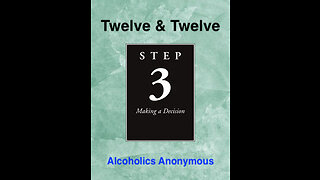 12:22
12:22
RecoveredNotCured
1 year agoChapter 3 (Step 3) - Twelve Steps & Twelve Traditions - Alcoholics Anonymous - 12 & 12
491 -
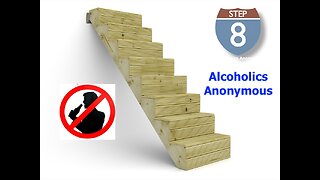 9:05
9:05
RecoveredNotCured
1 year agoStep 8 - Twelve Steps & Twelve Traditions - Alcoholics Anonymous - Read Along - 12 & 12
20 -
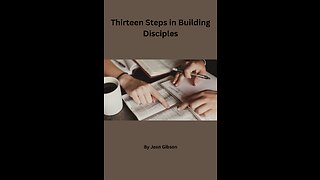 5:06
5:06
Christian Writings
1 year agoThirteen Steps in Building Disciples, Appendix B: Leadership
34 -
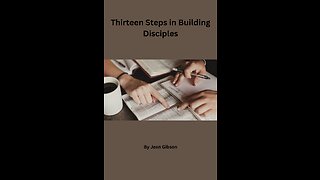 7:45
7:45
Christian Writings
1 year agoThirteen Steps in Building Disciples, Discussion Questions on 13 Steps
24 -
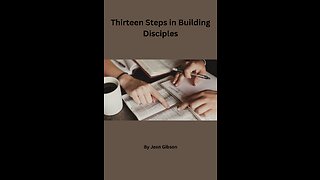 5:51
5:51
Christian Writings
1 year agoThirteen Steps in Building Disciples, Step 1: Follow Up
31 -
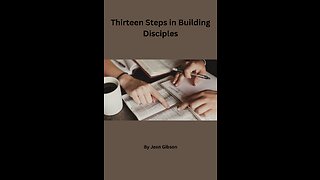 3:20
3:20
Christian Writings
1 year agoThirteen Steps in Building Disciples, Guidelines for Discussion Leaders
29 -
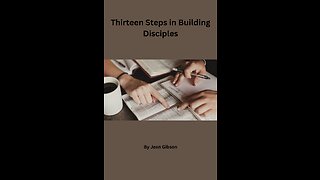 8:26
8:26
Christian Writings
1 year agoThirteen Steps in Building Disciples, Appendix C: The Disciple in Spiritual Warfare
28 -
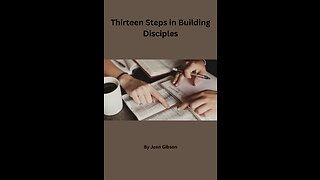 9:59
9:59
Christian Writings
1 year agoThirteen Steps in Building Disciples, Step 7: The Disciple's Commitment to Servanthood
45 -
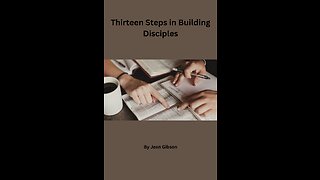 5:43
5:43
Christian Writings
1 year agoIntroduction to Thirteen Steps in Building Disciples
34 -
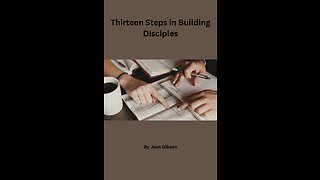 8:25
8:25
Christian Writings
1 year agoThirteen Steps in Building Disciples, Step 2: Disciple Making
28